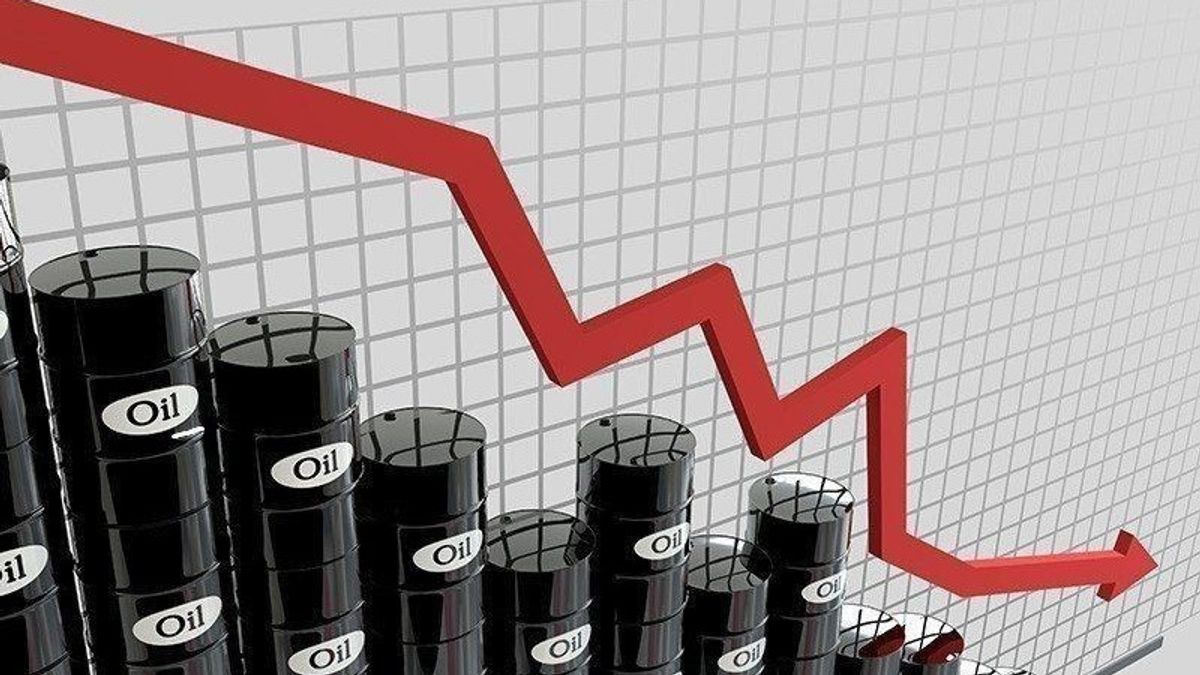JAKARTA - The price of crude oil will fall at the end of trading on Friday (Saturday morning WIB), as market participants remain concerned over the prospect of oil demand amid more interest rates that could weaken demand despite signs of tighter supply.
West Texas Intermediate (WTI) crude futures for August delivery slipped 0.35 dollars, or 0.50 percent, to settle at 69.16 dollars a barrel on the New York Mercantile Exchange.
Brent crude futures for August delivery slumped 0.29 dollars or 0.39 percent to settle at 73.85 dollars a barrel on the London ICE Futures Exchange.
Two more US interest rates this year are "very plausible" projections, according to Mary Daly, president of the San Francisco Federal Reserve.
"It seems that there is a type of risk back off trade that is increasing now in crude oil, triggered by rising interest rates in the European Union and a disappointing stimulus figure from China," said Dennis Kissler, senior vice president of trade at BOK Financial.
"The increase in the UK Central Bank interest rate has triggered liquidation of funds and energy producers moving to a "hedging right now" mentality," added Kissler.
Higher interest rates increase loan costs for businesses and consumers, which could slow economic growth and reduce demand for oil.
Risk evasion among investors also boosted the value of the US dollar, which reduced oil prices by making commodities more expensive for other currency holders.
"Oil traders in the global market continue to calculate prices in the global recession and based on what we see on German yield curves and data this morning from the euro zone, they may get their wish," said Phil Flynn, senior analyst at The PRICE Futures Group., quoted from ANTARA, Saturday, June 24.
The recent 50 basis point increase in European Central Bank interest rates helped Germany's most inverted yield curve since 1992, a sign for some people that they believe the recession is imminent, according to Flynn.
France's initial composite Composite Purchase Manager Index (PMI) was at 47.3 in June, down from 51.2 in the previous month, and Germany's composite PMI fell to 50.8 in June from 53.9 in May, under analyst expectations for 53.6 reading, according to data released on Friday, June 23.
However, the WTI rebounded from its daily low of 67.35 dollars per barrel, thanks to strong technical support.
WTI oil rebounds from strong support in the 67 area to 67.5 dollars per barrel despite fears of a recession, said Vladimir Zernov, analyst with market information supplier FX Empire. If WTI oil settles below this level, traders will expect a massive sell-off, Zernov said.
The English, Chinese, Japanese, Arabic, and French versions are automatically generated by the AI. So there may still be inaccuracies in translating, please always see Indonesian as our main language. (system supported by DigitalSiber.id)













